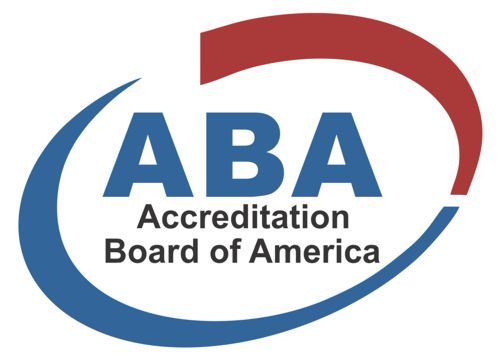
Reprinted from GreenBuzz, a free weekly newsletter. Subscribe here.
It’s a weird moment in sustainable business. The corporate activity, the money flows, and the pressure from consumers, investors and regulators to take more proactive measures — all are ramping up. The mainstream media interest in corporate sustainability and climate tech is rising, too, a reflection of the perceived importance of companies’ efforts to minimize their negative impacts and, in a small but growing number of cases, increase their positive impacts on people and the planet.
It’s a heady time for those of us who have been toiling in these fields for years or decades, often far from the limelight. So, why do company communications on these efforts seem so feeble and — OK, I’ll just say it — incompetent?
When it comes to sustainability, few companies seem to have mastered the art of storytelling. And to the extent they tell stories, they’re all too often filled with impenetrable jargon, head-scratching facts, overarching generalizations — and way too many buzzwords — that can undercut or obscure whatever message they’re trying to communicate.
Companies fear the backlash from both the left (‘too little, too late’) and the right (‘too much, too soon’).
It’s not just consumer-facing messaging. Here is the opening sentence of an actual, real-life press pitch I received last week:
ClimaFi, a British climate tech company, has teamed up with Concordium, a permissionless layer 1, science-backed blockchain designed to balance privacy with accountability through its WEB 3 ID layer and the use of Zero-knowledge proofs, to launch a platform for trading carbon credits from verified UK peatlands and woodlands.
I’ve read and reread this run-on sentence multiple times. I get the gist — but, then again, I’ve been in the field for decades. Clearly, the good people at ClimaFi and Concordium wanted to pack in as many details as possible into the opening sentence, a phenomenon I see with disheartening regularity. I’m guessing few editors’ and reporters’ understanding of tech and climate will be sufficient to discern the story these guys are trying to tell. I’m sure it’s a good story, maybe even important. There’s no way of knowing, at least not from this word salad.
That’s just one example, however egregious, of the state of the art of sustainability comms. Is it any wonder few of these stories see the light of day?
Cattle call
Here’s another example, from the global food giant Danone: the lead paragraph of a press release issued last month touting the company’s plan to reduce emissions of methane, a potent greenhouse gas, from dairy cattle:
Danone, a leading food company and one of the world’s largest dairy companies, announces today a global action plan to reduce absolute methane emissions from its fresh milk supply chain by 30% by 2030. Danone expects to remove 1.2 million tons carbon dioxide equivalent of methane emissions by 2030. This ambitious plan builds on the progress Danone has been making in recent years, already reducing its methane emissions by c. 14% between 2018 to 2020.
The message is marginally clearer, but it lacks important context. Is 30 percent a little or a lot? Is there a subsequent goal to eventually zero out its methane emissions (and, if so, when or is 30 percent the ultimate goal? And then there’s the jargon: Will reporters clearly understand “absolute” emissions reductions or “tons carbon dioxide equivalent of methane emissions” or “c. 14%”? I have my doubts.
I don’t want to pooh-pooh Danone’s announcement here — it strikes me as a leadership goal, albeit a partial fix to a vexing problem, but again, I’m an educated consumer of such information. And Danone is hardly alone in this regard. Nearly all corporate announcements on sustainability issues lack context that can help the reader — a reporter, employee or other stakeholder — understand its significance.
These challenges will only increase. The combined forces of the moment — the growing public concern about the ravages of a changing climate, the growing regulatory scrutiny of company statements, the incessant activist charges of greenwash and the saber-rattling of opportunistic politicians, bloggers and podcasters against so-called “woke capitalism” — will conspire to tamp down corporate sustainability communications at a time when companies need to be more outspoken than ever.
Ironically, this is also a time when companies have bigger and more important stories to tell. Natural resource use is becoming more efficient; preserving biodiversity is a growing business issue. Toxicity in products and waste streams is slowly but surely being reduced. Most industries are wringing out the carbon and water intensity of their products and processes. Some are moving quickly to electrify and decarbonize parts of their operations and supply chains. Climate tech is scaling so quickly that renewable energy is the cheapest form of power and electric vehicles are cost-competitive with petroleum-powered ones. Even so-called “hard to abate” sectors such as steel and concrete are finding innovative ways to reduce emissions.
In other words, this should be boom times for companies and their sustainability comms partners. They should be strutting their stuff, drowning out the naysayers and the grievance peddlers who say that these things can’t, or shouldn’t, be done.
And yet they are being done, and companies are reaping the benefits at the same time they are helping transition once-intractable sectors into a new, more sustainable direction.
Companies have not yet risen to the comms challenge. Far from it. They still see sustainability as an ancillary issue, of minimal interest to all but the most passionate souls. They fear the backlash from critics on both the left (“too little, too late”) and the right (“too much, too soon”). They relegate communications assignments to young staffers or external PR firms, who may be ill-equipped to integrate content and context in a way that makes sustainability communications accessible to their intended audiences.
From a company perspective, it’s a self-fulfilling prophecy: This stuff isn’t that important. Let’s check the box and issue a press release, relying on the tried-and-true formula we’ve used for all our corporate comms. Let’s not put too much into it; after all, it probably won’t get that much attention.
And, of course, it doesn’t.
Thanks for reading. You can find my past articles here. Also, I invite you to follow me on Twitter and LinkedIn, subscribe to my Monday morning newsletter, GreenBuzz, from which this was reprinted, and listen to GreenBiz 350, my weekly podcast, co-hosted with Heather Clancy.
If you’d like to read the original source of this article please click here Visit Source

